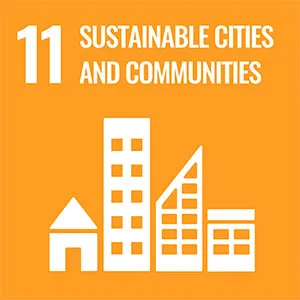MSc Machine Learning
Machine Learning develops algorithms to find patterns or make predictions from empirical data and this master’s programme will teach you to master these skills. Machine Learning is increasingly used by many professions and industries such as manufacturing, retail, medicine, finance, robotics, telecommunications and social media. Graduates from the programme will be experts in the field, qualified for exciting careers in industry or doctoral studies.

Machine Learning at KTH
In this programme, you will learn the mathematical and statistical foundations and methods for machine learning with the goal of modelling and discovering patterns from observations. You will also gain practical experience in matching, applying and implementing relevant machine learning techniques to solve real-world problems in a broad range of application domains. Upon graduation from the programme, you will have gained the confidence and experience to propose tractable solutions to potentially non-standard learning problems which you can implement efficiently and robustly. Stockholm has a vibrant start-up community and large established companies integrating AI and Machine Learning into their technological development. This gives you the potential for relevant and exciting industrial work within the field during and after your studies.
The programme starts with mandatory courses in machine learning and artificial intelligence to provide an introduction to the field and a solid foundation. These courses are followed by an advanced course in machine learning and research methodology. From the second semester, you choose courses from two areas: application domains exploiting machine learning and theoretical machine learning. These areas correspond to the core competencies of a machine learning expert.
The first grouping of courses describes how machine learning is used to solve problems in application domains such as computer vision, information retrieval, speech and language processing, computational biology and robotics. The second course grouping allows you to take more basic theoretical courses in applied mathematics, statistics, and machine learning. Of particular interest to many will be the chance to learn about and understand in detail the exciting field of deep learning and generative AI through several state-of-the-art courses. The programme also includes elective courses that let you specialise further in your field of interest or broaden your knowledge into new areas.
The final semester is dedicated to a degree project involving participating in advanced research or design projects in an academic or industrial environment, in Sweden or abroad. With this project, you get to demonstrate your ability to perform independent project work using the skills obtained from the courses in the programme. In the past, students from the programme have completed projects at companies such as Saab, Elekta, Flir, Ericsson, Tobii, Spotify, Thales, and AstraZeneca.
This is a two year programme (120 ECTS credits) given in English. Graduates are awarded the degree of Master of Science. The programme is given mainly at KTH Campus in Stockholm by the School of Electrical Engineering and Computer Science (at KTH).
Courses in the programme
The courses in the programme cover topics such a Machine learning, deep learning, statistical modelling, artificial intelligence, computer vision, speech technology, information retrieval, optimisation.
Courses in the programme Machine Learning
Future and career
The demand for engineers and scientists with expertise in Machine Learning is growing, driven by the increased availability of data, the increasingly powerful ML models, and their applicability across a wide range of domains and industries. After graduation, you can pursue a career in industry, at a start-up or in a traditional, well-established company. Graduates work as software developers, deep learning engineers, computer vision engineers, data analysts, software engineers, quantitative analysts, data scientists and systems engineers in companies such as Dice, Logitech, Google, and McKinsey in, for example, Sweden, Switzerland, Germany, China, India, and the US.
This master's programme is also a suitable basis for work in a research and development department in industry, as well as for a continued research career, and doctoral studies.
Sustainable development
Graduates from KTH have the knowledge and tools for moving society in a more sustainable direction, as sustainable development is an integral part of all programmes. The three key sustainable development goals addressed by the master's programme in Machine Learning are:



Advancements in Machine Learning are increasingly influencing many facets of our lives and are expected to have a growing impact on society. On the one hand, it can render many blue-collar and white-collar jobs obsolete due to increased automation. However, it also has the potential to, for example, enhance patient outcomes through more personalised medicines and diagnoses. Some of these developments may not benefit everyone in society or could have unintended consequences.
Graduates of the programme are well informed about the technical capabilities and potential applications of Machine Learning and well-positioned to push the advancement of Machine Learning/AI further. Thus, as part of the programme, and within KTH, we highlight the ethical issues and responsibilities of these skills and knowledge in mandatory courses such as the Program Integrating Course in Machine Learning (DD2301) and Artificial Intelligence (DD2380). We see these responsibilities as being aligned with the UN Sustainable Development Goals, where we specifically promote awareness of the SDGs as part of “DD2301: the Programme Integration Course" and also highlight the use cases of “AI for good", which intersect with the SDGs, such as in the design and operation of wind and solar farms to make them more efficient, the diagnosis and treatment of various diseases and the design of health interventions, and precision engineering to promote more efficient farming practices.
In the final year of their studies, students from the programme will have an opportunity to complete final degree projects that are highly relevant to multiple SDGs. Examples of where such projects took place in the past are:
- SDG: “Good Health and Well-being", with medical technology companies such as Elekta and RaySearch;
- SDG: “Sustainable Cities and Communities", with the automatic monitoring of satellite imagery within the Division of Geoinformatics, KTH.
- SDG: “Peace and Justice Strong Institutions", with the independent international institute SIPRI.






